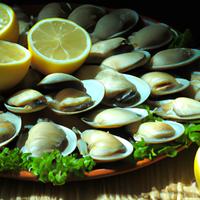
1 serving (140 grams) contains 200 calories, 7.0 grams of protein, 1.2 grams of fat, and 41.0 grams of carbohydrates.

Log this food in SnapCalorie

Nutrition Information
Calories |
333.3 | ||
|---|---|---|---|
% Daily Value* |
|||
| Total Fat | 2.0 g | 2% | |
| Saturated Fat | 0.3 g | 1% | |
| Polyunsaturated Fat | 0 g | ||
| Cholesterol | 0 mg | 0% | |
| Sodium | 1.7 mg | 0% | |
| Total Carbohydrates | 68.3 g | 24% | |
| Dietary Fiber | 3.3 g | 11% | |
| Sugars | 2.0 g | ||
| protein | 11.7 g | 23% | |
| Vitamin D | 0 mcg | 0% | |
| Calcium | 16.7 mg | 1% | |
| Iron | 2.0 mg | 11% | |
| Potassium | 103.3 mg | 2% | |
* Percent Daily Values are based on a 2,000 calorie diet. Your daily values may be higher or lower depending on your calorie needs.
Food Attributes
Source of Calories
About Cooked shells
Cooked shells, also known as pasta shells, are a type of small, hollow pasta shaped to hold sauces, fillings, or other ingredients. Originating from Italian cuisine, they are made primarily from durum wheat semolina and water. Their versatility makes them a popular choice in dishes like baked pasta casseroles, cold pasta salads, or stuffed shells filled with cheese or meat. Nutritionally, cooked shells provide a good source of carbohydrates, which are essential for energy. They are low in fat and cholesterol but lack significant amounts of fiber or protein unless paired with nutrient-rich ingredients like vegetables, legumes, or lean proteins. Whole grain versions offer added fiber and nutrients, making them a healthier option. Moderation is key, as refined versions can contribute to high calorie intake when consumed in excess or topped heavily with creamy, high-fat sauces.



